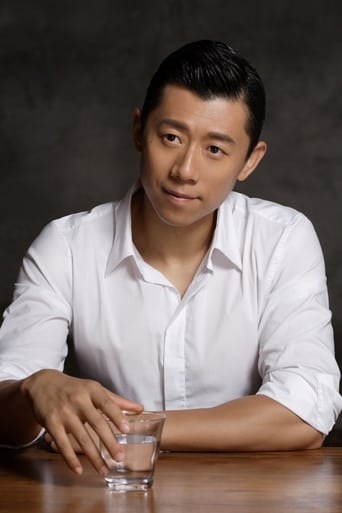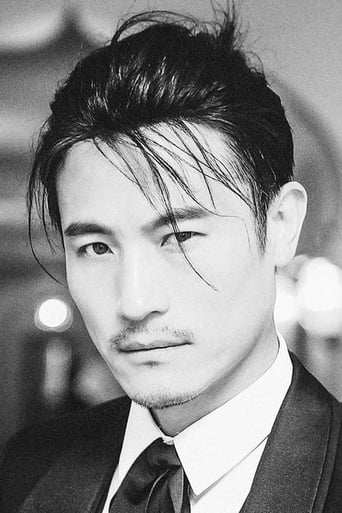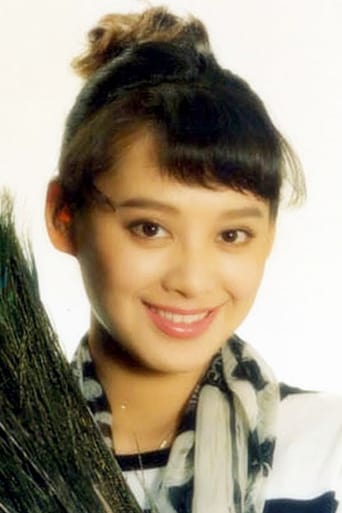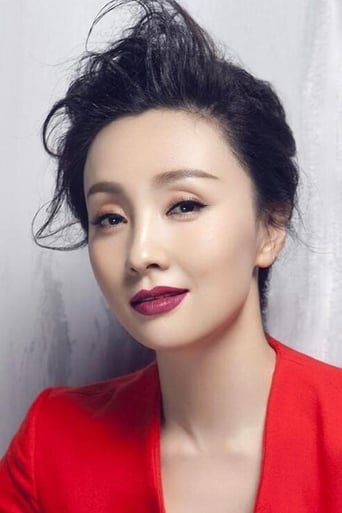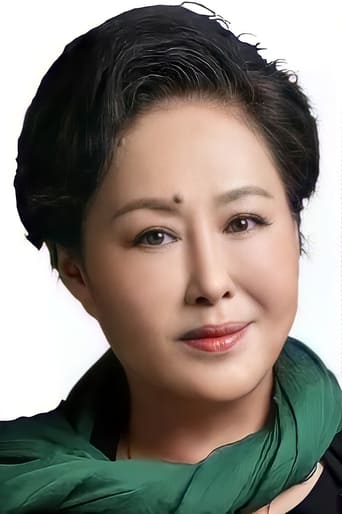Kattiera Nana
I think this is a new genre that they're all sort of working their way through it and haven't got all the kinks worked out yet but it's a genre that works for me.
KnotMissPriceless
Why so much hype?
Calum Hutton
It's a good bad... and worth a popcorn matinée. While it's easy to lament what could have been...
Erica Derrick
By the time the dramatic fireworks start popping off, each one feels earned.
Angus T. Cat
I came to In the Heat of the Sun through an adaptation of the original novel by Shuo Wang, a graphic novel in two volumes called Wild Animals by Chinese artist Song Yang. I was fascinated especially as I haven't come across any other comics or manga from China. The first volume intrigued me so much I sought out the second volume, and I wanted to see the movie as well. I was glad to find a release with English subtitles. I was startled by the story of a group of teenage hooligans free to run around Peking beating up rival gangs because all the adults are either working or have been sent to the country to reeducate others, and the schools are lax. As the cover of the graphic novel indicates, it's a tale of love and violence. I knew little about the Cultural Revolution but I didn't expect that the main characters' experience of daily life during this era, notorious for political terror and the upheaval of the lives of millions, to be a story also reflecting coming of age and first love. It's like West Side Story told by one of the most violent kids in the gang, but the love story goes sour, the narrator's attempts to be heroic also turn dark, and none of the kids seek to escape the brutality around them. It's a shame that the original novel hasn't been translated into English as of yet. An keynote of Wild Animals and the In the Heat of the Sun is the unreliability of memory, and whether the narrator's accounts of his youth have taken on his embellished presentation of himself to his adored older Mi Lan or his wish to remember his younger self as a brave warrior like his revolutionary idols. The conclusion of the graphic novel shows the narrator admitting to himself that the ending scene of him attacking Mi Lan never happened: he was never intimate with her. His first kiss comes from a night with Yu Beipei, when he enters her bed as she sleeps at his friend's house. It's unclear exactly what happens after she berates him for being too young to truly want sex, and lectures him that someday he'll want to be married and he needs to be worthy for his future wife. He remembers "It was truly the most important living political ideology lesson of my entire life". The graphic novel begins with a glimpse of the older narrator and his friends, now grown up, in modern China, but while the older narrator's voice is heard, the other characters are never shown again as adults. I noted from the reviews of the film that the director of the movie altered some of the events and details to reflect his own childhood, and it feels authentic as an universal looking back at teenage years and the first stirrings for grown up life, independence, and love. The ending of the film is very telling, as it shows the boys now grown up riding in a open top limo in the new 1990s China. It indicated to me how much China has changed: that the drive the boys felt to be heroes for their country is now directed towards success by Western standards. I appreciated reading the comments here and sensing how the film is regarded by people who grew up in China and during the same time; In the Heat of the Sun is revealing as well for viewers from other countries and other generations, as it has much to say about the young learn how to regard their contemporaries and learn how to love.
ems97
This film is an excellent depiction of how people construct narratives of their own past. They take what they like, exaggerate those aspects, try to fit it into a coherent story. They try to construct stories that depict them as who they want to be. People may tell these constructed stories to others, but they also try to convince themselves of the veracity of their constructed stories. This movie explores these ideas in a very powerful way, through the viewpoint of a boy growing up. I found it especially meaningful because I can personally relate to it. I'm not going to spoil the best scenes for you by telling you the way in which the ideas are presented.
Howard Schumann
Due to lack of adult supervision during the Chinese Cultural Revolution, the mischievous boys of military fathers are free to spend their summer left to their own devices. Too young to join other youths working in the countryside, they spend their time riding their bikes, getting into gang fights, picking up girls, and asserting their masculinity. Chosen as one of 100 best Chinese films of the century by Asia Weekly Magazine, Wen Jiang's In the Heat of the Sun is a coming of age story set in Beijing in the 1970s after the Red Guards had been disbanded. The first film by a sixth generation Chinese director, it played to packed audiences of young people when it first opened in Beijing in 1995, but has never been released in North America.In the Heat of the Sun is based on the novel "Wild Beast" by Wang Shou, a controversial Chinese author who has written many stories about rebellious teenagers. The film is a subjective recollection about a group of friends who meet when their Army dads are shipped out to support Chairman Mao in 1969, recollections embellished by the narrator's fanciful memory. Steeped in eroticism and youth violence, it is a sharp turn from the melodramatic epics of the early 1990s that interpreted China's past as a time of sexual repression. Jiang does not wallow in marketable clichés or make a special appeal to Western audiences but, like the young people in the film, imparts to the work a freshness and authenticity that sets it apart.The film stars 17-year old Yu Xia as "Monkey" Ma Xiaojun, a rebellious teenager who is a stand-in for the director as a young man. Xia (whose name translates as 'Summer Rain') won the award for best actor at the 1994 Venice Film Festival, the youngest actor ever to win this award. Narrated by the director who is also a popular Chinese actor, the opening narration tells us that "Peking has changed so fast. In 20 years, it's become a modern city. Almost nothing is as I remembered. Change has wiped out my memories. I can't tell what's imagined from what's real." The film's leitmotif is introduced almost immediately and we understand the reason for the title. "My stories always take place in summer", the narrator continues."The sunlight was so relentless, so bright, that our eyes were washed in waves of blackness. In the Heat of the Sun. In the raging storms of Revolution. The soldiers' hearts turn towards the sun." During that summer, Monkey acts out fantasies that make him feel like a hero and talks about characters from Russian novels and films dealing with revolutionary heroes searching for glory. He imagines himself standing up to bullies and enemies of the state in an imagined World War III and, in his fantasy, is willing to die for his country and his honor with women. He fights for his group, sending a rival gang member to the hospital for a month, sneaks into people's apartments with a self-made key (though he never steals anything), and watches films banned as inappropriate for children by the authorities.Monkey's main focus, unsurprisingly, is a girl whose portrait hanging on the wall of an apartment he let himself into is immediately captivating. His pursuit of Mi Lan (Ning Jing), who is a few years older than him, is, however, fraught with rejection, jealousy of group leader Liu Yiku, and passion that veers out of control. Although Jiang problematically redefines the Cultural Revolution as a period of spontaneity and freedom rather than dislocation and chaos, the film is not about politics but about the perilous transition from adolescence to maturity. Unlike other coming of age films, it is not a reflection of sadness and longing but an odyssey filled with the excitement of a new found freedom and revolutionary ardor.
Ge Wang
This is, by all means, one of the most beautiful films I've ever seen. In spite of the generational gap between us who were born in the 80s and the director who went through their puberty in the 60s, it's a portrait and poem of memory and childhood, regardless of age matters. It is physically impossible to be absolutely honest and draw back memories in the exact realistic way. So we all start telling our own stories mixed with both facts and imaginations. This film actually reminds me of Giuseppe Tornatore's masterpiece Malèna. The beginning of puberty desire for females, become the fundamental essence of both movies. Both boys had their final releases, with endings filled with both bitterness and sweetness. I believe that every single male audience who watched these two films can recall their dim but lively memory of the curiosity for girls at that age. Amazing...as a Chinese myself, I did find myself more involved with Jiang Wen's piece though. The cinematography, from Gu Changwei, who's also known for his Berlin Silver Bear winning direction of Peacock, simply stands in the realm of perfection. The yellowish and blurring photographic construction of scenarios generates the nostalgic theme of the movie, and helps the story become more beautiful as it has already been. The black&white ending, FANTASTIC. A truly imaginative and creative conclusion. Apart from the ironic contrast of the hierarchical statuses among the 'gang' members comparing to their old days, the final line shot by the retarded guy actually made me think. We are becoming materially and intellectually richer and cleverer as we grows, but should those childishness and innocently pure emotions from our childhood be cherished? Days 'in the heat of the sun' has not only symbolize memory, but also speak for the pureness and simple innocence. We are all 'fools', as we enter the kingdom of adulthood, we will inevitably lose our naive characteristics. Life is always about gaining and losing at the same time, isn't it? Politically and culturally speaking, Jian Wen did not focus much of his storytelling on the miseries and depressions resulted from Mao's Cultural Revolution. Again, this is not a realistic representation of the concrete historical notion, it's a artistic craft tributing to memories. My parents, who shared the similar historical experience with Jiang Wen, did not acknowledge this film as a proper description of their childhood when they saw it. "It's too romantic to be true." as they said to me. However, they both admitted that the film did reflect their own fantasies of an ideal past. Every time I ask them about what happened with their childhood, they can only give me a vague framework. A lot of the times, the recalling always come with a particular item, like shoes, football, soy sauce, Mao's red book... "Sometimes, maybe a kind of sound and a stream of smell, can bring you back to the truth." as Jiang Wen said in the voice-over in the film. It's not only for people grew up in the 60s, but also for everybody. Funny as it is, memories can cheat on you and rationalize you in the same filed.A Time to Live in Dream, this Beach Boy classic accidentally pops into my head. "The child's joyous tear, with innocence he has no fear, now I know what love really is..." Days with brightly shining and heating sun conspire to create a time to live in dream, what a marvel!

